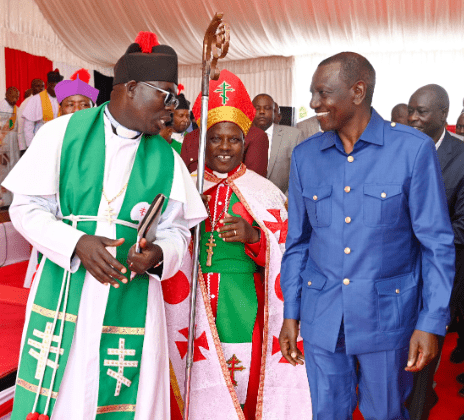Church should focus on political causes, not parties
By Macharia Muhoho, December 6, 2024The government is on the receiving end from an unlikely quarter: the church.
The National Council of Churches of Kenya (NCCK), along with the Catholic and Anglican churches, has criticised the government for not meeting the expectations of Kenyans.
Church leaders have expressed disappointment in the government’s failure to address key issues such as corruption, unemployment, and insecurity.
They have called for greater accountability and transparency in governance, urging the government to prioritise the needs of the people. This reminds us of Galileo Galilei and the church.
In 1610, the renowned scientist made a groundbreaking discovery that challenged the belief that the Earth was the centre of our solar system. He boldly asserted that all planets, including Earth, revolve around the sun.
However, his revolutionary findings faced fierce opposition from the Catholic Church, which viewed his ideas as heretical. As a result, Galileo was condemned as a heretic and banished by the Church.
In later years, Galileo was proven right, and the church apologised. Is the Church viewing the government as heretical? Do religious organisations have the right to condemn the government?
For a long time, churches in Kenya have played a significant role in the country’s politics, with clergy acting as their representatives. This influence dates back to figures like Bishop Alexander Muge and Timothy Njoya.
And it continues with leaders such as Cardinal John Njue, archbishops Anthony Muheria, Philip Anyolo and Jackson Ole Sapit. The church’s involvement has extended beyond religious matters to include political development.
Throughout history, the church in Kenya has frequently been a voice for the marginalised and oppressed, advocating against injustices and promoting social change.
During political unrest and the struggle for democracy, the church is a beacon of hope and strength for many Kenyans.
Its influence extends beyond church buildings, shaping societal morals and holding those in power accountable for maintaining justice and equality.
Churches in Kenya often serve as platforms for political discourse and activism, with clerics frequently speaking out on social and political issues. This has irked the government. But should the church engage in political issues?
The principle of separation of church and state is a fundamental aspect of the Kenyan Constitution. This principle ensures that religious institutions and government entities remain independent of each other, safeguarding the rights and freedoms of all citizens.
The Constitution protects the church from the state, not the state from the church. The government should not interfere with people’s religious freedom. Religious people influencing the democratic process is freedom.
In Kenya, religious institutions play a role in providing social services, including education, healthcare, and poverty alleviation programmes.
Churches often operate schools and hospitals, extending support to those in need and promoting unity among their members.
Their significant influence on political and social spheres highlights their importance in the country’s development.
However, churches mustn’t align with a particular candidate or partisan perspective. They should focus on political causes rather than parties, such as social justice, universal healthcare, and the fight against corruption.
—The writer is an Innovations Evangelist and a PhD Candidate; machariamuhoho@gmail.com
More Articles

